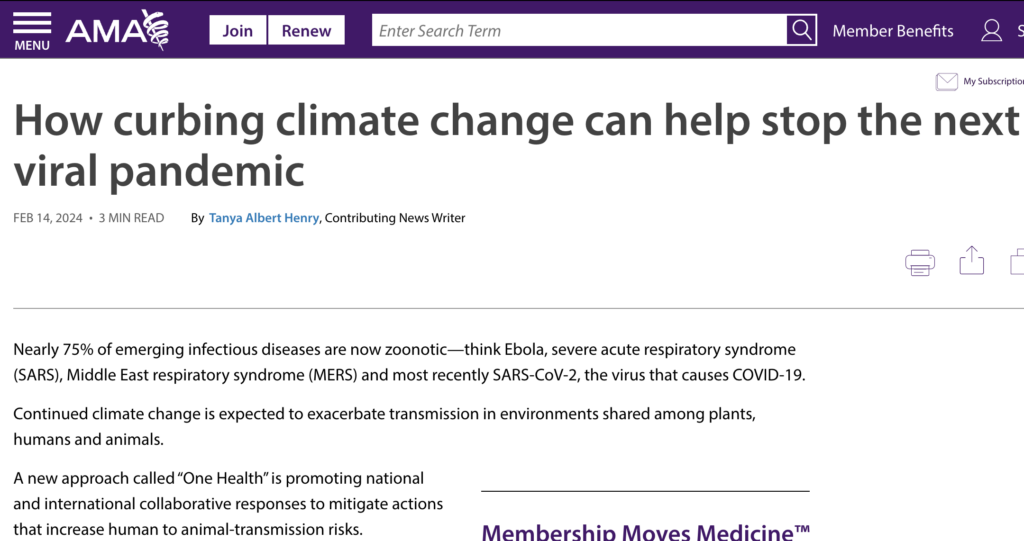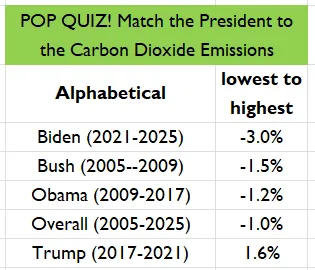Nearly 75% of emerging infectious diseases are now zoonotic—think Ebola, severe acute respiratory syndrome (SARS), Middle East respiratory syndrome (MERS) and most recently SARS-CoV-2, the virus that causes COVID-19.
Continued climate change is expected to exacerbate transmission in environments shared among plants, humans and animals.
A new approach called “One Health” is promoting national and international collaborative responses to mitigate actions that increase human to animal-transmission risks.
The February issue of AMA Journal of Ethics® (@JournalofEthics) features numerous perspectives on the nature and scope of the collective responses to key changes spurred by climate change’s impact on health ecology and germ transmission. Authors explore in detail the social, cultural and ethical complexities involved.
The February issue of AMA Journal of Ethics includes the following articles:
#
“Why Climate Literacy Is Health Literacy”
-
- The health consequences of global warming are severe and will get worse, yet literacy about these problems is poor.



